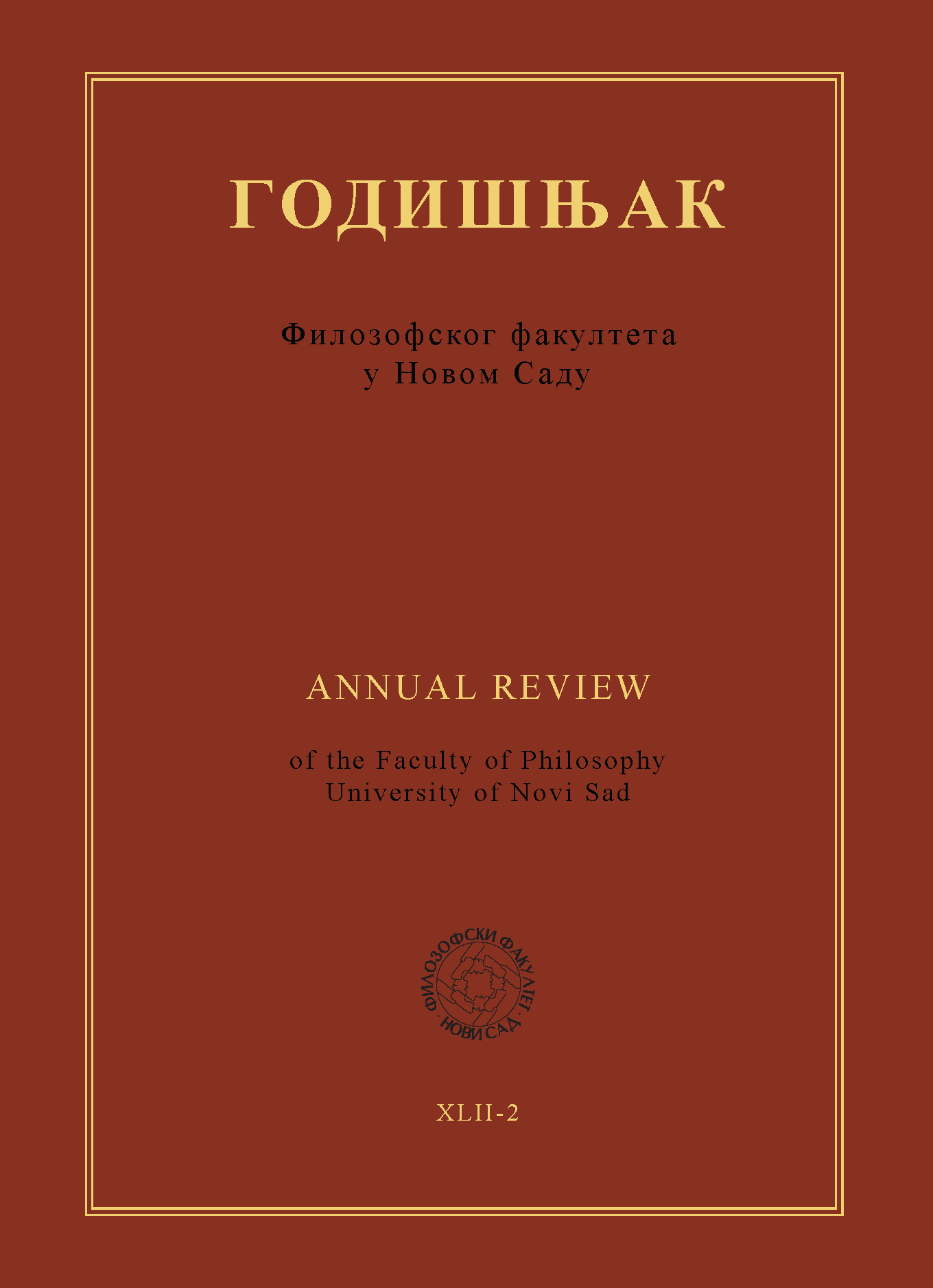OPINION OF TEACHERS, PARENTS AND PEDAGOGY STUDENTS ON THE HOMESCHOOLING
Main Article Content
Abstract
Following educational trends in the Western countries and the analysis of the situation in our education, in recent years the subject of debates in our area have been the possibilities of organizing education in family conditions. Considering that the education of children at home is legally regulated in a number of European countries, and that in the United States it has a decades-long tradition, the subject of this paper is to consider the assumptions of development of this educational model in Serbia. For this purpose, a brief empirical research was conducted related to the examination of opinions of teachers, parents and future expert associates – pedagogues on the model of homeschooling of children. The applied instrument was designed for the needs of wider research, with a sample of 441 subjects. The results show that the majority of respondents do not support homeschooling, where the students of pedagogy expressed a negative attitude towards this model of education to a lesser extent than teachers and parents. Finding that the students of pedagogy, who receive knowledge related to the alternatives in education during their studies, have a somewhat more positive opinion about homeschooling, implies that higher pedagogical culture and knowledge of alternatives in the field of education can lead to greater openness when it comes to this model of education. According to this, the question arises as to whether learning about examples of good homeschooling education from other countries, as well as providing adequate state support, appropriate materials and curricula for this model of education, will contribute to wider acceptance of this model of education in our society. In any case, it is not desirable to reject novelties that are in line with fundamental human rights and can provide benefits in the field of education. It is only necessary to develop systematic support and adequately administer the control system which will allow parents to provide education under different circumstances that will contribute to the general welfare of children.
Downloads
Article Details
References
Blok, H. (2004). Performance in Home Schooling: An Argument against Compulsory Schooling in the Netherlands. International Review of Education, 50(1), 39–52.
Blok, H., & Karsten, S. (2011). Inspection of Home Education in European Countries. European Journal of Education, 46(1), 138˗152.
Boyd, W. (2005). Markets, Choices and Educational Change. In A. Hargreaves (Ed.), Extending Educational Change: International Handbook of Educational Change. The Netherlands: Springer. 69–94.
Dumas, T. K., Gates, S., & Schwarzer, D. R. (2010). Evidence for Homeschooling: Constitutional Analysis in Light of Social Science Research. Widener Law Review, 16(1), 63˗87.
Frost, E. A., & Morris, R. C. (1988). Does Home-Schooling Work? Some Insights for Academic Success. Contemporary Education, 59, 223-227.
Gaither, M. (2009). Homeschooling in the USA: Past, Present and Future. Theory and Research in Education, 7(3), 331–346.
Gardner, H. (2005). Disciplinarni um: obrazovanje kakvo zaslužuje svako dijete, s onu stranu činjenica i standardiziranih testova. Zagreb: Educa.
Hagen, T. (2011). Free to Learn: The Rationale for Legalizing Homeschooling in Albania. Central European Journal of Public Policy, 5(2), 50˗84.
Kostelecká, Y. (2010). Home Education in the Post-Communist Countries: Case Study of the Czech Republic. International Electronic Journal of Elementary Education, 3(1), 29˗44. Preuzeto 7. oktobra 2013, sa http://www.iejee.com/3_1_2010/29_44.pdf
Kunzman, R., & Gaither, M. (2013). Homeschooling: A Comprehensive Survey of the Research. Other Education: The Journal of Educational Alternatives. 2(1), 4-59.
Lines, P. M. (2000). Homeschooling Comes of Age. Public Interest, 140, 74–85.
Martin-Chang, S., Gould, O.N., & Meuse, R.E. (2011). The Impact of Schooling on Academic Achievement: Evidence From Homeschooled and Traditionally Schooled Students. Canadian Journal of Behavioural Science, 43(3), 195-202.
Medlin, R. G. (2000). Home Schooling and the Question of Socialization. Peabody Journal of Education, 75(1-2), 107˗123.
Merry, M. S., & Karsten, S. (2010). Restricted Liberty, Parental Choice and Homeschooling. Journal of Philosophy of Education, 44(4), 497-515.
Milutinović, J. (2011). Alternative u teoriji i praksi savremenog obrazovanja: put ka kvalitetnom obrazovanju. Novi Sad: Savez pedagoških društava Vojvodine; Vršac: Visoka škola strukovnih studija za obrazovanje vaspitača „Mihailo Palov”.
Milutinović, J., & Zuković, S. (2014). Kvalitetno obrazovanje darovitih u kontekstu modela školovanja dece kod kuće. U G. Gojkov & A. Stojanović (ured.), Daroviti i kvalitet obrazovanja: Zbornik 19. Vršac: Visoka škola strukovnih studija za obrazovanje vaspitača „Mihailo Palov”– Vršac; Arad: Universitatea de Vest „Aurel Vlaicu”. 347-353.
Petrie, A. (2001). Home Education in Europe and the Implementation of Changes to the Law. International Review of Education, 47(5), 477˗500.
Planty, M., Hussar, W., Snyder, T., Kena, G., Kewal Ramani, A., Kemp, J., Bianco, K., & Dinkes, R. (2009). The Condition of Education 2009. Washington DC: Government Printing Office.
Rudner, L. M. (1999). Scholastic Achievement and Demographic Characteristics of Home School Students in 1998. Education Policy Analysis Archives, 7(8). doi: http://dx.doi.org/10.14507/epaa.v7n8.1999
Sliwka, A., & Istance, D. (2006). Choice, Diversity and „Exit” in Schooling – A Mixed Picture. European Journal of Education, 41(1), 45˗58.
Spiegler, T. (2009). Why State Sanctions Fail to Deter Home Education. An Analysis of Home Education in Germany and its Implications for Home Education Policies. Theory and Research in Education, 7(3), 297–309.
UN Office of the High Commissioner for Human Rights ˗ OHCHR (2000). Human Rights: A Basic Handbook for UN Staff. 2000. Preuzeto 25. oktobra 2013, sa http://www.refworld.org/docid/483eac7b2.html
Villalba, C. M (2009). Home-Based Education in Sweden: Local Variations in Forms of Regulation. Theory and Research in Education, 7(3), 277–296.
Zakon o osnovnom obrazovanju i vaspitanju (2013). Službeni glasnik RS. Br. 55/2013.
Zuković, S., & Milutinović, J. (2013). Razvoj školskog i pedagoškog pluralizma u Republici Srbiji; u Radovan Grandić (ur.), Obrazovni sistem i vrednosti iz ugla pluralizma i autonomije ličnosti. Novi Sad: Pedagoško društvo Vojvodine. 79-96.




